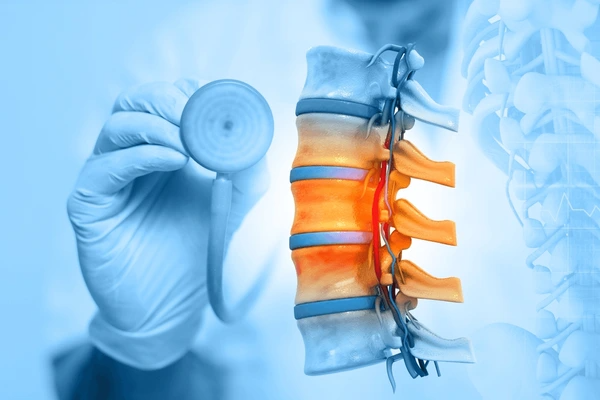How Minor Auto Accidents Can Lead to Lingering Discomfort

Minor car accidents happen more often than you might think, and while they may seem insignificant at first, they can lead to unexpected injuries and ongoing discomfort.
What are Minor Auto Accidents?
Minor auto accidents, often involving low-speed collisions, can still have significant long-term effects, including physical injuries and psychological trauma. Despite appearing minor at first, these accidents can lead to issues like whiplash, emotional distress, and ongoing discomfort, which may require extensive treatment and rehabilitation.
Surprisingly, minor accidents are common, making up around 60% of all reported car accidents yearly. Distracted driving, bad weather, and heavy traffic contribute to their frequency. Beyond the physical injuries, victims often face financial burdens from medical bills, vehicle repairs, and increased insurance premiums, underscoring the severe impact these accidents can have on their lives.
What are the Most Frequent Causes of Minor Auto Accidents?
Understanding the most frequent causes of minor auto accidents is crucial for prevention and awareness. Common factors contributing to these incidents include distracted driving, speeding, improper lane changes, and adverse weather conditions that can lead to property damage and personal injuries.
What are the Most Common Injuries from Minor Auto Accidents?
Victims of minor auto accidents may suffer from a variety of injuries, some of which can lead to long-lasting effects, including chronic pain and mobility issues. Common injuries include whiplash injuries, traumatic brain injuries, and spinal cord injuries, which may necessitate extensive rehabilitation efforts and emotional support, including counseling therapy, to navigate the recovery process effectively.
What are the Symptoms of Whiplash?
Whiplash injuries, often caused by the sudden back-and-forth motion of the neck in a minor auto accident, can lead to long-lasting physical and emotional challenges. Common symptoms include severe headaches, nerve damage causing tingling or numbness in the arms, joint discomfort, and both physical and mental fatigue. The emotional impact is also significant, with many individuals experiencing anxiety, depression, and related symptoms as they recover. Comprehensive treatment plans are essential to address these issues, and the associated medical expenses can add up quickly, making proper documentation and support during recovery crucial.
What are the Symptoms of Concussions?
Concussions, often underestimated in minor auto accidents, can lead to a range of symptoms like memory loss, headaches, cognitive impairments, and emotional trauma, all of which can complicate recovery. These symptoms can affect everyday life, making concentrating, completing tasks, or engaging in conversations hard. Emotional issues like anxiety, irritability, and even post-traumatic stress disorder (PTSD) can arise, adding to the challenges of recovery. Signs of cognitive impairment may include difficulty focusing, memory lapses, and confusion. Seeking counseling and emotional support is vital to help manage these symptoms and ensure overall well-being during the healing process.
What are the Symptoms of Bruises and Contusions?
Bruises and contusions are common in minor auto accidents, often showing up as skin discoloration, pain, and swelling that might require both medical attention and emotional support. These injuries can occur anywhere on the body and may signal more profound trauma that isn’t immediately visible. Symptoms typically include intense pain, swelling, and changes in skin color. Addressing these signs early is important, as they can guide the healing process. Pain management can involve over-the-counter medications or tailored treatment plans from healthcare providers. The emotional aspect of recovery is also significant, and having a strong support system, including friends, family, or counselors, can help individuals cope with the discomfort and anxiety that may accompany these injuries. Reaching out for support is key to ensuring a well-rounded recovery.
What are the Symptoms of Soft Tissue Injuries?
Soft tissue injuries from minor auto accidents can lead to significant issues like chronic pain, muscle weakness, and joint problems, which can complicate recovery and potentially cause long-term degenerative changes. These injuries may present with symptoms such as varying levels of pain, swelling, stiffness, and muscle spasms, all of which can interfere with daily life. Effective treatment often requires a combination of physical rehabilitation, pain management, and emotional support to restore strength and mobility. Early intervention is crucial to prevent lasting effects, and coping strategies play a vital role in managing the emotional stress that can accompany chronic symptoms, emphasizing the need for a holistic approach to recovery.
How Long Do the Effects of Minor Auto Accidents Last?
The duration of effects from minor auto accidents can vary widely among individuals, with some experiencing immediate symptoms. In contrast, others may face chronic pain, mobility issues, and emotional issues that linger for months or even years.
What is the Recovery Time for Whiplash?
Recovery time for whiplash injuries can vary widely, typically ranging from a few weeks to several months, depending on factors like the injury’s severity, the effectiveness of rehabilitation, and the patient’s overall health. Age, adherence to treatment plans, and the availability of comprehensive health coverage also play important roles in the healing process. A balanced recovery approach may include physical therapy to improve mobility, chiropractic care to relieve pain, and pain management strategies, including medications and alternative treatments like acupuncture. Emotional support is crucial as well, as dealing with chronic pain can lead to anxiety or depression, complicating recovery. Managing medical expenses during this time is also important, underscoring the need for proper health coverage and budgeting.
How Long Do Concussion Symptoms Last?
Concussion symptoms can last from a few days to several weeks, depending on the severity of the injury and the individual’s response to treatment, making prompt medical attention essential for recovery. Symptoms like headaches, dizziness, and difficulty concentrating can disrupt daily life, so having a comprehensive treatment plan is vital. This plan should include regular medical check-ups, rest, a gradual return to normal activities, and emotional support from family or professionals. It’s also important to be aware of the potential for long-term issues, such as ongoing headaches or mood swings, and to continue monitoring and care to ensure a smooth recovery and return to daily routines.
How Long Do Bruises and Contusions Take to Heal?
Healing time for bruises and contusions usually ranges from a few days to a couple of weeks, depending on factors like the severity of the injury, age, overall health, and where the bruise is located. Bruises on fatty areas may heal faster than those on bony regions. It’s important to monitor your recovery, as excessive swelling or persistent pain might indicate underlying issues that require medical attention. Seeking emotional support from friends and family can also aid in your physical recovery. Treatment plans, including ice therapy, compression, and elevation, can help speed healing. A professional evaluation may sometimes be needed to rule out fractures or other serious injuries. Following a proper recovery plan ensures a smoother healing process and helps restore confidence in movement.
What is the Recovery Time for Soft Tissue Injuries?
Recovery time for soft tissue injuries can range from several weeks to several months, depending on the severity of the injury and the individual’s response to treatment. Key factors influencing recovery include the type of treatment—whether conservative or surgical—along with structured rehabilitation efforts to improve mobility and strength. Chronic pain can slow down recovery, making it crucial to manage discomfort effectively. Emotional support from loved ones also plays a significant role in maintaining motivation and well-being during healing. Additionally, carefully managing physical dependency on the injured area is essential for a timely recovery. By considering these factors, individuals can better navigate their healing journey and improve their chances of returning to daily activities smoothly.
What are the Treatment Options for Lingering Discomfort?
Various treatment options are available to address lingering discomfort after minor auto accidents, including rehabilitation therapies, pain management techniques, and psychological counseling to support emotional recovery. Physicians Group LLC, often referred through hotlines like 1-800-ASK-GARY, provides specialized care tailored to accident victims, ensuring you receive the appropriate treatment for recovery.









